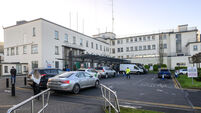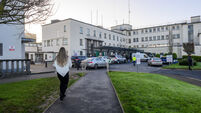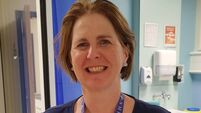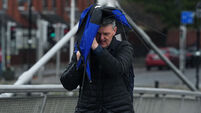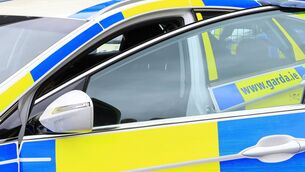Minister warns of further A&E pressure amid worst crowding since INMO records began
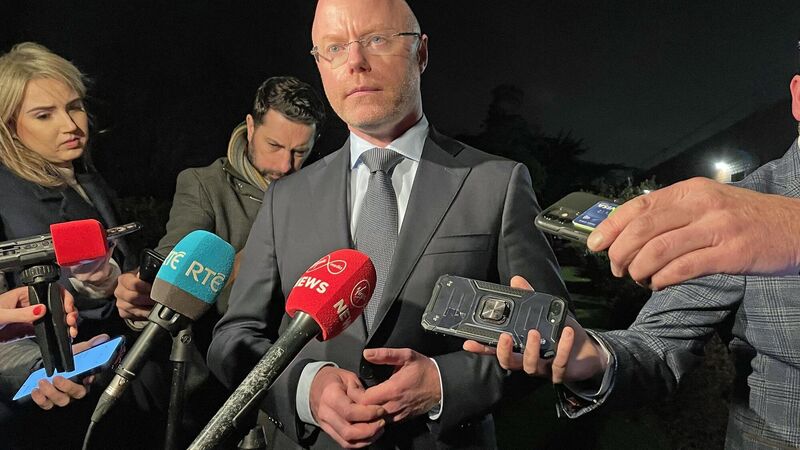
Stephen Donnelly speaking to media outside the Beaumont Hospital in Dublin last night. The Health Minister said pressure on hospitals is set to get even worse due to a surge in infections. Picture: Gráinne Ní Aodha/PA
Hospital porters roll aside five or six trolleys holding patients and their belongings to reach someone who needs to be treated or moved.
Catering staff carefully deliver hot food, trying not to spill it over the sick lying on trolleys in narrow corridors.




